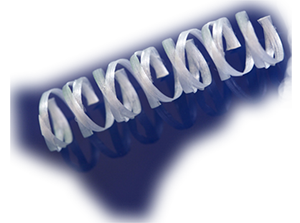 TissueGen‘s chief scientist and co-founder, Kevin Nelson, told Drug Delivery Business News the story behind the company he founded in 2000 and its drug delivery technology, the Elute fiber.
TissueGen‘s chief scientist and co-founder, Kevin Nelson, told Drug Delivery Business News the story behind the company he founded in 2000 and its drug delivery technology, the Elute fiber.
DDBN: How did TissueGen get its start?

Nelson: In 1996, while faculty in biomedical engineering at The University of Texas at Arlington, I was working with Dr. Robert Eberhart at the University of Texas Southwestern Medical Center at Dallas. Together, we collaborated with a team to develop a biodegradable vascular stent that had the potential to deliver a live virus to the arterial wall. Simultaneously, I was working with Dr. Nathan Schwade at the Callier Center, Texas Woman’s University to develop a method to deliver non-toxic drugs to the inner ear. The cross-pollination of these two projects, developing fibers for stents and microspheres for otic delivery, inspired me to investigate delivering drugs directly from an extruded fiber.
This early work was followed by a collaboration with Dr. George Smith at UT Southwestern Medical Center at Dallas, a leading researcher working on peripheral nerve regeneration. Dr. Smith and I demonstrated the first reported fascicle formation in regenerated nerves with the aid of fibers while subsequently working with Dr. Nadir Alikacem at the Callier Center, Texas Woman’s University.
I became convinced of the commercial viability of this fiber-based drug delivery technology and in 2000 embarked upon the path to commercialization by founding TissueGen, Inc. Following relentless development efforts spanning more than a decade, TissueGen has delivered upon the promise of implantable drug delivery from biodegradable fibers resulting in the commercial release of Elute fiber in 2013.
DDBN: What is the Elute fiber?
Nelson: Elute fiber is an ideal material for both implantable and topical drug delivery and importantly, may serve as an active scaffold for tissue engineering and regenerative medicine applications that require sustained, controlled delivery of sensitive molecules.
Elute fiber can deliver drugs that range in size from small pharmaceuticals to viruses in controlled sustained profiles over days, weeks, even a year based upon the drug and fiber properties. Elute fiber simultaneously provides strong mechanical support while also delivering biologics or pharmaceuticals in controlled dosages over sustained release profiles directly at the topical or surgical implant site.
Elute fiber offers several other unique advantages over traditional drug delivery formats. Elute fiber’s long cylindrical geometry provides a slower drug release rate than similar radius spherical geometries resulting in inherently longer therapeutic windows for similar pharmaceutical concentrations. And because Elute fiber is manufactured in a highly controlled wet extrusion process, the resulting fibers are more uniform in size distribution than typically found with other formats. Elute fiber is also both readily implantable and maintains positional stability post-implant—a unique advantage when targeting specific tissue sites such as solid tumors. Additionally, Elute fiber may decrease toxicity risk to patients because it can be explanted (unlike microspheres and nanoparticles) in the case of an adverse reaction to the drug.
DDBN: How did TissueGen address the challenges that come with loading temperature-sensitive drugs into implantable materials?

Nelson: Typically, medical fibers are manufactured through melt-extrusion at high temperatures and high shear stress, thereby severely limiting the types of biologics and pharmaceuticals that can remain viable through the manufacturing process. To address these limitations, TissueGen, Inc. developed and patented a modified wet-extrusion process to manufacture its commercially available product, Elute fiber, at or below body temperature and with relatively low shear stress. Coupled with TissueGen’s proprietary drug protection methods, the viability of incorporated drugs is protected during the fiber manufacturing process so that the broadest range of pharmaceuticals and biologics available remain viable and may be delivered in tailored release profiles from Elute fiber.
DDBN: How do you envision the Elute fiber being used in the pharmaceutical and biotech industries?
Nelson: The potential applications for Elute fiber for advanced drug delivery, nerve regeneration and tissue engineering are truly limitless. Elute fiber in biologics and pharmaceutical formats may replace traditional biodegradable fibers currently incorporated in medical devices.
DDBN: Are you in talks with any potential industry partners?
Nelson: Yes, but we can’t comment at this time.
DDBN: What’s ahead in 2018 for the TissueGen team?
Nelson: We’re excited to continue to successfully drive product development and implementation of Elute fiber for advanced drug delivery and regenerative medicine applications.

